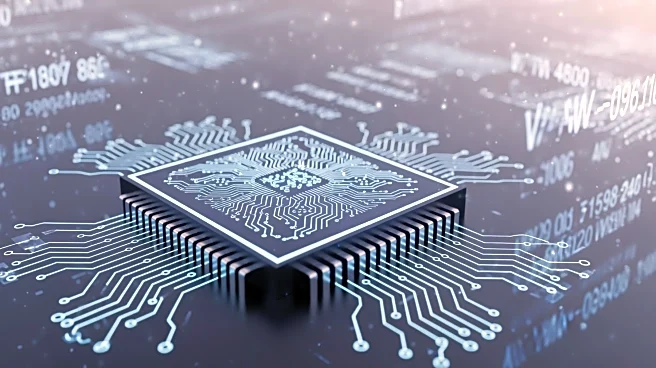What's Happening?
Chipmakers and analysts are raising alarms about a looming memory chip shortage that could significantly affect the consumer electronics and automotive sectors in the coming year. The surge in demand for
advanced memory chips, driven by the artificial intelligence boom, is causing manufacturers to prioritize AI-related production over consumer products. Zhao Haijun, co-CEO of Semiconductor Manufacturing International Corp, noted that customers are hesitant to place orders for the first quarter of next year due to uncertainty about memory chip availability. Analysts highlight that AI servers, primarily using processors from companies like Nvidia, rely heavily on High-Bandwidth Memory (HBM), which is in high demand. Memory suppliers such as SK Hynix and Micron are focusing on meeting this demand due to the high margins associated with AI applications.
Why It's Important?
The potential shortage of memory chips poses a significant risk to industries reliant on affordable memory components, such as PCs, laptops, consumer electronics, and automotive manufacturing. As chipmakers focus on high-margin AI applications, these sectors may face production bottlenecks and increased costs. The memory industry's previous downturns in 2023 and 2024 led to under-investment, exacerbating the current supply constraints. The shift in production priorities could lead to higher prices and reduced availability of essential components for consumer products, impacting manufacturers and consumers alike.
What's Next?
The memory industry is working to expand capacity, but this process will take time to address the current shortages. As manufacturers ramp up production, stakeholders in the consumer electronics and automotive sectors may need to explore alternative solutions or adjust their production strategies to mitigate the impact of the shortage. The situation may prompt discussions among industry leaders and policymakers about balancing AI-driven demand with the needs of traditional consumer markets.
Beyond the Headlines
The focus on AI-driven memory chip production highlights broader trends in technology and manufacturing, where high-margin applications can shift industry priorities. This development underscores the need for strategic planning and investment to ensure balanced growth across sectors. The ethical implications of prioritizing AI over consumer needs may also spark debate about the role of technology in society and the responsibilities of manufacturers.












